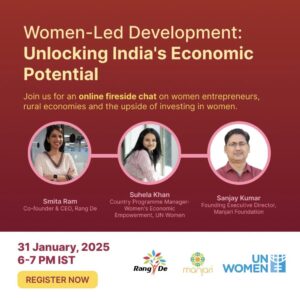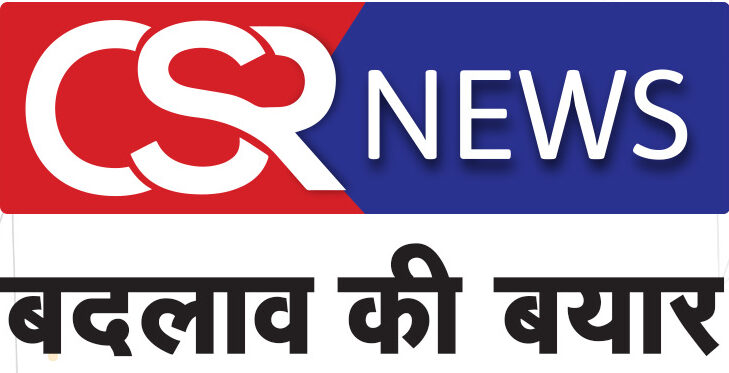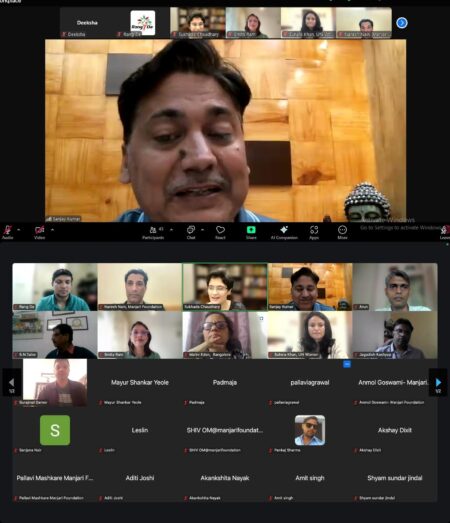New Delhi, Feb 01: The online fireside chat held on January 31, 2025, brought together an inspiring panel of thought leaders to discuss the transformative impact of women-led development on India’s economic potential. Hosted collaboratively by Rang De, Manjari Foundation, and UN Women, the event provided a platform to delve into the critical role of women entrepreneurs and rural economies in fostering sustainable growth.
Key Panelists:
– Smita Ram, Co-founder & CEO, Rang De
– Suhela Khan, Country Programme Manager, Women’s Economic Empowerment, UN Women
– Sanjay Kumar, Founding Executive Director, Manjari Foundation
The session witnessed vibrant discussions around the following key themes:
1. Empowering Women Entrepreneurs:
Smita Ram highlighted the significance of providing women in rural areas access to affordable credit and mentorship opportunities. She emphasized how organizations like Rang De are bridging the gap to unlock the untapped potential of rural women entrepreneurs.
2. Role of Partnerships in Economic Inclusion:
Suhela Khan from UN Women underscored the importance of cross-sector collaborations in achieving gender equality and economic empowerment. She pointed out that investing in women’s businesses not only uplifts individual households but also accelerates national growth.
3. Grassroots Leadership:
Sanjay Kumar shared impactful stories from the Manjari Foundation’s initiatives, where women’s collectives have become catalysts for social and economic change. He stressed that empowering rural women to take on leadership roles leads to transformative and enduring community development.
Key Takeaways:

– Women entrepreneurs are central to creating resilient and inclusive economies.
– Holistic strategies that integrate access to resources, capacity building, and market linkages are vital for sustainable development.
– Collaboration between stakeholders—NGOs, corporate partners, and policymakers—can amplify the impact of grassroots initiatives.
Engagement & Feedback:
The event was well-received, with more than 100 participants actively engaging during the Q&A segment. The audience praised the practical insights shared by the panelists and called for more such conversations to drive actionable change.
Closing Thoughts:
As the session concluded, the panelists reinforced the idea that investing in women is not just an ethical imperative but also an economic necessity. They called for collective action to ensure that women across India can access the opportunities and support they need to thrive.

